Erdogan Says Leaders Of Turkey, Syria Could Meet For Peace
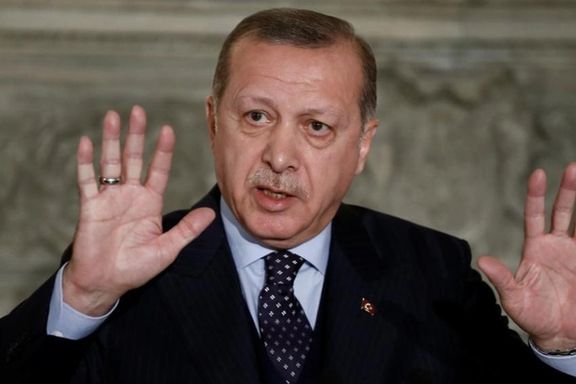
Turkish President Tayyip Erdogan said Thursday he may meet Syria's Bashar al-Assad, after their defense ministers met last week in Moscow with Iran absent.

Turkish President Tayyip Erdogan said Thursday he may meet Syria's Bashar al-Assad, after their defense ministers met last week in Moscow with Iran absent.
In a speech in Ankara, Erdogan said the next step, following the landmark talks between defense ministers in Moscow, would be a trilateral meeting of the foreign ministers from Turkey, Russia and Syria, to further develop contacts.
"We have launched a process as Russia-Turkey-Syria," Erdogan said. "We will bring our foreign ministers together and then, depending on developments, we will come together as leaders."
Turkey has been the primary backer of Syria's opposition for more than a decade of war, while Russia has backed the Syrian government.
Iran, a major player in the Syrian war since 2011 and a participant in previous diplomatic efforts, was not invited to the meeting in Moscow.
The conflict continues into a second decade, although fighting is at a lower intensity than in earlier years.
With backing from Russia and Iran, Assad's government has recovered most Syrian territory. Turkish-backed opposition fighters still control a pocket in the northwest, and Kurdish fighters backed by the United States also control territory near the Turkish border.
A Turkish official said the Turkish and Syrian defense ministers met in Moscow on December 28., with the topics of migration and Kurdish militants on the agenda.
Turkish-Syrian rapprochement seemed unthinkable earlier in the conflict, and Syria's oppositions has urged Turkey to reaffirm its support.
With reporting by Reuters
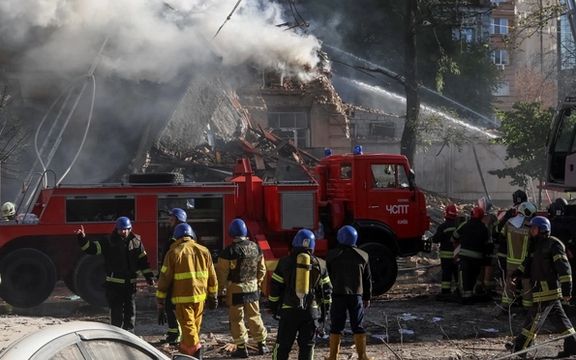
Ned Price, US foreign affairs spokesman, has called Iran “one of the most complex challenges we face” and reiterated the 2015 nuclear deal is off the US agenda.
Speaking to the press Wednesday, Price, the State Department spokesman, said the United States had “no reason to put any stock or faith into the statements” made recently by Iranian officials that they were keen to resume talks over reviving the 2015 agreement, the JCPOA (Joint Comprehensive Plan of Action).
“There was a deal to mutually return to the JCPOA that was on the table that was approved by all parties” in September, Price said. “That ultimately went nowhere only because the Iranians weren’t prepared to accept it…The JCPOA hasn’t been on the agenda for some months now.
“There is no denying that Iran presents one of the most complex challenges we face… Its nuclear program has been the focus of successive administrations. Its malign activities throughout the Middle East and in some cases potentially even beyond has been the focus of successive administrations…And now what it is doing to its own people – the repression……[and] the security assistance that it’s providing to Russia – all of these…. represent…one of the most difficult challenges we face.”
While failure to agree JCPOA restoration in either year-long multilateral talks in Vienna or subsequent bilateral US-Iran contacts reflected gaps between Iran and the US over JCPOA restoration, Price’s reference to complexities reflects new complications.
‘On the agenda, but not on the table’
Firstly, Iran’s supply of military drones to Russia has shifted the approach of the three European JCPOA signatories, France, Germany, and the United Kingdom. While the European Union foreign policy chief Joseph Borrell has continued diplomatic efforts with Iran, meeting Foreign Minister Hossein Amir-Abdollahian in Amman in December, European officials have intimated that Iran’s involvement with Russia precludes JCPOA revival.
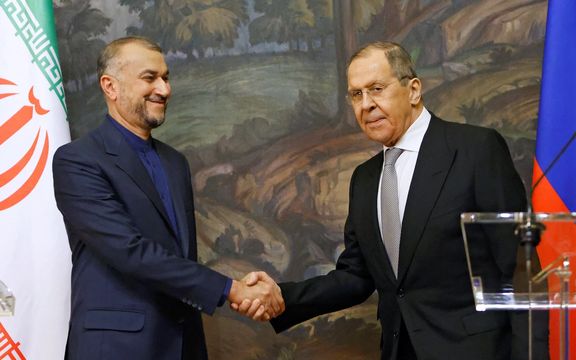
Europe long held to the JCPOA logic of separating Iran’s nuclear program from other issues, but it has agreed with the US that the drones supply – even if, as Iran says, before the February outbreak of the latest Ukraine hostilities – violates a JCPOA clause restricting Iran trading certain categories of arms.
European states have joined the US in levying new sanctions against Iran over both the drones and Tehran’s response to recent unrest. Hossein Mousavian, former Iranian Deputy Foreign Minister and nuclear negotiator, told Al-Monitor this meant the JCPOA was now “on the agenda but not on the table.”
Mousavian said the “Europeans are playing a more active role to create an international consensus against Iran, more because of the Ukraine issue…[and] compared to the US…[had] become ‘more Catholic than the Pope’ in advancing hostile policies against Iran.”
A second complication is the return to office in Israel of Benjamin Netanyahu with a coalition including ultra-Zionists, which has created a new challenge for Washington. While Netanyahu, who has for decades portrayed Iran as on the threshold of a nuclear weapon, is playing up his warm relationship with President Joe Biden, there are clear US nerves.
‘Security and stability’
A Pentagon read-out of the first telephone call, late Wednesday, between US Defense Secretary Lloyd Austin and new Israeli counterpart Yoav Gallant featured Austin warning Israel not to “undermine security and stability in the West Bank,” a reference to speeding up Jewish settlements in occupied Palestinian land.
The US read-out referred to agreement “on the need to work together to address…regional challenges, including threats posed by Iran’s destabilizing activities,” while the Israeli defense department statement said Gallant had “emphasized in the conversation Israel’s commitment to do whatever it takes to prevent Iran from obtaining nuclear weapons...”
Something similar happened with Monday’s call between Antony Blinken, US Secretary of State, and Eli Cohen, the Israeli foreign minister. A right-wing Israeli newspaper cited sources that Blinken had proclaimed the JCPOA dead. The US read-out of the call made no mention of this, and a US official subsequently denied it.
Security analysts have also discussed whether growing US-Israel military co-operation, highlighted this week by joint air drills, makes an attack on Iran more likely or is rather a means to rein in a Netanyahu-led Israel.
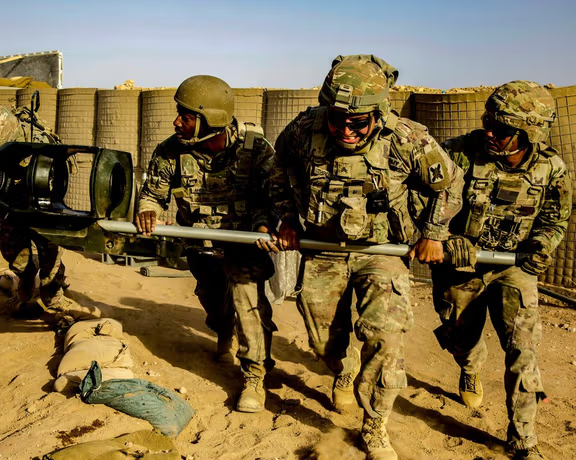
The United States Central Command says two rockets have targeted coalition forces in northeastern Syria, a day after the 3rd anniversary of Qassem Soleimani's death.
In a statement on Wednesday, CENTCOM announced that two rockets hit coalition forces at Mission Support Site Conoco.
However, it did not give any further details about who was responsible for firing the rockets.
“The attack resulted in no injuries or damage to the base or coalition property,” the statement read, adding that the “Syrian Democratic Forces (SDF) visited the rocket origin site and found a third unfired rocket.”
No individual or group has yet claimed responsibility for this attack, but Rami Abdul Rahman, Head of the Syrian Observatory for Human Rights emphasized that this happened one day after the third death anniversary of former IRGC Quds Force Commander Qassem Soleimani, saying “pro-Iranian groups” have launched the attack.
The Islamic Republic and its proxy militia groups provide military support to Bashar al-Assad's regime in Syria.
After Qassem Soleimani was killed in a US attack in Baghdad, the top Iranian officials repeatedly threatened revenge for his death.
On January 3, 2020, the US military, on the order of President Donald Trump, killed Soleimani in a drone strike near Baghdad International Airport, saying that he had been "actively developing plans to attack American diplomats and service members in Iraq and throughout the region."
Several hundred American soldiers are stationed in the north and east of Syria as part of the international coalition against ISIS.
In recent years, the coalition bases have been sporadically targeted by rockets or drones.
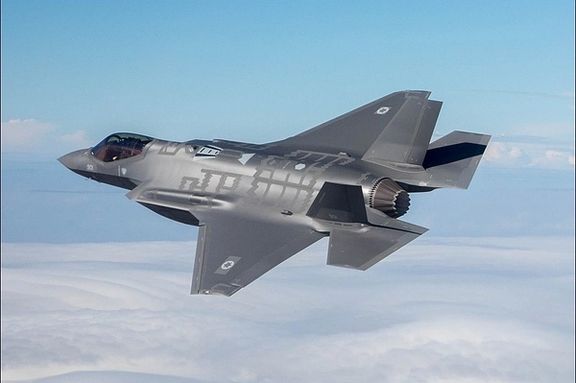
Israel and the United States have conducted air exercises in southern Israel in what an observer said, “could be signal to Iran in the ongoing nuclear standoff.”
Joint drills of Israeli F-35 jets and six US F-15 jets were based out of the Nevatim air base, where Israeli squadron commanders briefed Jerusalem Post military correspondent Jonah Jeremy Bob on training “for hitting targets in ‘deep’ enemy territory.” Bob wrote that the terminology was “often a euphemism for Iran and other countries who do not have immediate borders with Israel” and therefore should be seen a “signal to Iran.”
The return to power of Benjamin Netanyahu, heading a right-wing and pro-Jewish settler coalition, has fed speculation of an Israeli military attack on Iran. While outgoing prime minister Yair Lapid left office claiming Israel was better capable of striking Iran than ever, outgoing defense minister Benny Gantz told graduating air-force personnel late December they should be ready within “two to three years.”
Implying greater urgency, the Jerusalem Post’s report quoted a commander involved in Wednesday’s air drills that Israel’s three squadrons of US-supplied F-35s, even with some planes grounded for technical reasons, were “plenty, along with other Israeli fighter aircraft, to accomplish any mission that would need to be assigned.”
Netanyahu, whose warnings of an imminent Iranian nuclear bomb go back to the 1990s, is keen to stymie efforts by world powers to revive the 2015 Iran nuclear deal, the JCPOA (Joint Comprehensive Plan of Action). The Likud leader strongly backed President Donald Trump pulling the US from the JCPOA and imposing ‘maximum pressure’ sanctions impeding Iran’s access to international markets.
But Netanyahu and his ministers now stress their closeness to the administration of President Joe Biden, which took office pledged to restoring the JCPOA but has been unable to agree terms with Tehran. Netanyahu’s call this week to win ‘global opinion’ against Iran suggests he thinks he can shift Biden in the direction he wants.
According to Israel Hayom, the Israeli newspaper owned by the Adelson family, Antony Blinken, the US Secretary of State, told Eli Cohen, Israel’s foreign minister, by phone January 2 that the JCPOA was finished. But the State Department read-out of the call referred only generally to a “threat from Iran,” did not mention the JCPOA, and stated Blinken had “emphasized the continued US commitment to a two-state solution [for Israel-Palestine] and opposition to policies that endanger its viability.”
US concerns over the likelihood of the Netanyahu government speeding up Jewish settlements in the occupied West Bank are not just that demographic changes under what rule human rights groups have called ‘apartheid,’ doom the ‘two-state solution’ that Washington still formally backs. The recent World Cup in Qatar highlighted popular Arab support for Palestinian rights.
Netanyahu has also said he wants to extend Israel’s Trump-brokered ‘normalization’ agreements with some Arab states, stressing an Iranian threat. But even the United Arab Emirates, which signed a ‘normalization’ agreement with Israel 2020 and has perhaps little to fear from public opinion, stressed at the time its support for a Palestinian state.
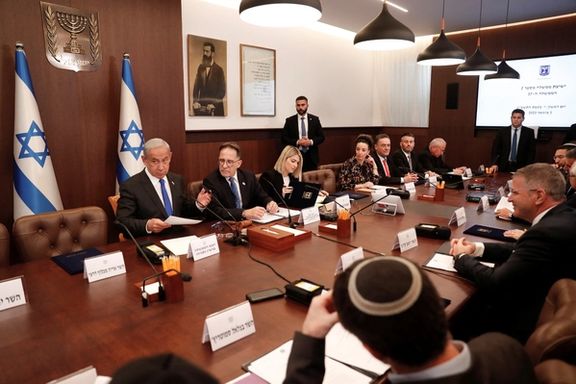
‘Keep your friends closer’
There is also nuance in the US-Israel military relationship. Washington’s 2021 shift of Israel from its European Command (EUCOM0) to CENTCOM, its Middle Eastern command, has been followed by talk from leading US officials of closer military cooperation.
But some analysts pointed out this works in two ways, and may help the US rein Israel in. Newsweek magazine in December quoted a senior US intelligence official that Israel “was coming out of the closet, allowed now to openly associate with the [US] military while at the same time being denied access to another closet.” One third of Hebrew linguists in the US government “work in intelligence collection and analysis specifically related to spying on Israel,” including its nuclear arsenal, Newsweek reported.
“The more that Israel is a credible military opponent of Iran, the very reason for this shake-up, the more that they are also suspect for the very capabilities that we are helping to create and improve,” the official told Newsweek. “This is a case of ‘Keep your enemies close and your friends closer.’”
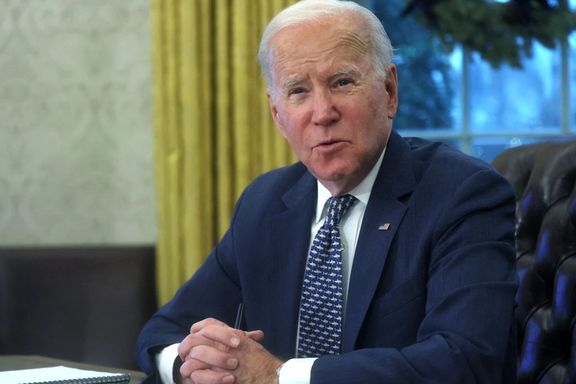
The United States is looking at ways to target Iranian drone production through sanctions and export controls, the White House said on Wednesday.
White House National Security Council spokesperson Adrienne Watson said in a statement Wednesday that Washington is talking to private companies whose parts have been used in production of the drones.
"We are assessing further steps we can take in terms of export controls to restrict Iran’s access to technologies used in drones," read the statement.
According to a Ukrainian intelligence assessment obtained exclusively by CNN, parts made by more than a dozen US and Western companies were found inside a single Iranian drone downed in Ukraine last fall.
The United States has previously imposed sanctions on companies and people it accused of producing or transferring Iranian drones that Russia has used to attack civilian infrastructure in Ukraine.
The Islamic Republic claimed Monday that Ukraine has never submitted any proof of Iranian-made drones being used by Russia in the war, as Russia launched another large attack.
Ukraine said December 13 that it provided Iran with the evidence. "We are not surprised by yet another objection from Iran regarding the supply of weapons to Russia. During the technical meeting, Ukrainian experts provided the Iranians with the sufficient evidence," Foreign Ministry spokesman Oleg Nikolenko said during an interview with Kyiv-based news agency Interfax-Ukraine.
Iran’s decision to supply weapons to Russia has played a major role in the deterioration of its already frayed ties with Europe that has put nuclear talks with Tehran on the back-burner since evidence emerged of the kamikaze drones being launched by Russia in October.

An Iranian regime insider says Iran’s military presence in Syria for many years was directly ordered by Supreme Leader Ali Khamenei.
Ali Shirazi, the former representative of Khamenei in IRGC's Quds Force said Wednesday that “when the Supreme Leader ordered former Quds Force commander Qassem Soleimani to go to Syria, he did not argue. He went and resisted firmly.”
“However, [other] officials including then-President Mahmoud Ahmadinejad did not believe we should go to Syria and fight against ISIS,” he added.
Shirazi’s comments about fighting ISIS contradict the fact that when Iran intervened in the Syrian civil war in 2011 the Islamic State group did not exist yet. Iran sent thousands of fighters and weapons to defend the government of Bashar al-Assad.
ISIS gained a foothold in Syria after the group seized large swaths of territory in Iraq in mid-2014.
Soleimani intervened in Syria as opposition to Assad was gaining momentum. He first played the role of an advisor to the government, but later he spearheaded Iran’s large-scale military intervention in the civil war. Many believe he was responsible for the deaths of thousands of civilians and call him the child-killing commander.
Soleimani was killed in Baghdad along with nine others in 2020 by a drone strike ordered by then-President Donald Trump.
The Qods Force under Soleimani became deeply involved in the conflicts in Syria and Iraq. Trump claimed that the general, who was Iran’s main operative in the Middle East, was killed because he was planning attacks on US troops.